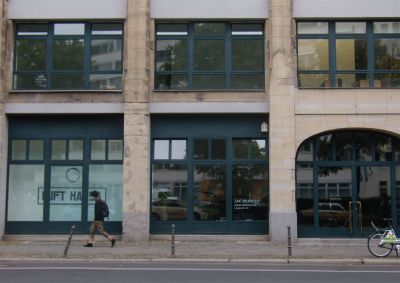Icons, pallets, Mars melons & planets: The artistic wonderland of Alicja Kwade

Self-confessed disbeliever and sceptical observer
Alicja Kwade, who thinks and works in cosmic dimensions, is now well on the way to becoming an international icon of expansive art. It is no wonder really because art for her has always been her natural environment and has played an important role in her family life. Her mother was a professor at the University of Silesia in Katowice / Uniwersytet Śląski w Katowicach, where she taught cultural studies and Slavic studies; her father, a trained restorer, founded and ran the first private gallery for contemporary art in the Silesian metropole. When Alicja was eight years old, she moved to Hanover with her parents and her three-year-old brother Martin. When she was 20, she went to Berlin and studied at the University of the Arts, completing her studies under Christiane Möbus. She then worked as an assistant to the artist Anselm Reyle, but she also worked as a waitress, shoe salesperson and security guide at the Berlinale. And although her thoughts wandered through the cosmos, she had both feet firmly on the ground. Her art, with which she was able to achieve such great success in such a short time, has its basis in a logical and compelling concept based on philosophical and scientific insights. But because Alicja Kwade is a self-confessed disbeliever and sceptical observer of the factual and hypothetical world(s), she does not believe what she see, hears or reads. She simply knows that she does not know what is real, true, constant and immutable. In order to illustrate the fragile perception of things between and among which people live, she creates complex works whose symbolism can be easily deciphered: stones generally embody the earth, when they are shaped into balls they relate to planets; time spins round in the clocks even if they are not recognisable as such at first glance; the mirrors duplicate or multiply lamps, lights and bodies apparently to infinity. The artist also plays with the shape of the objects that she presses, bends or moulds into unexpected poses.


















